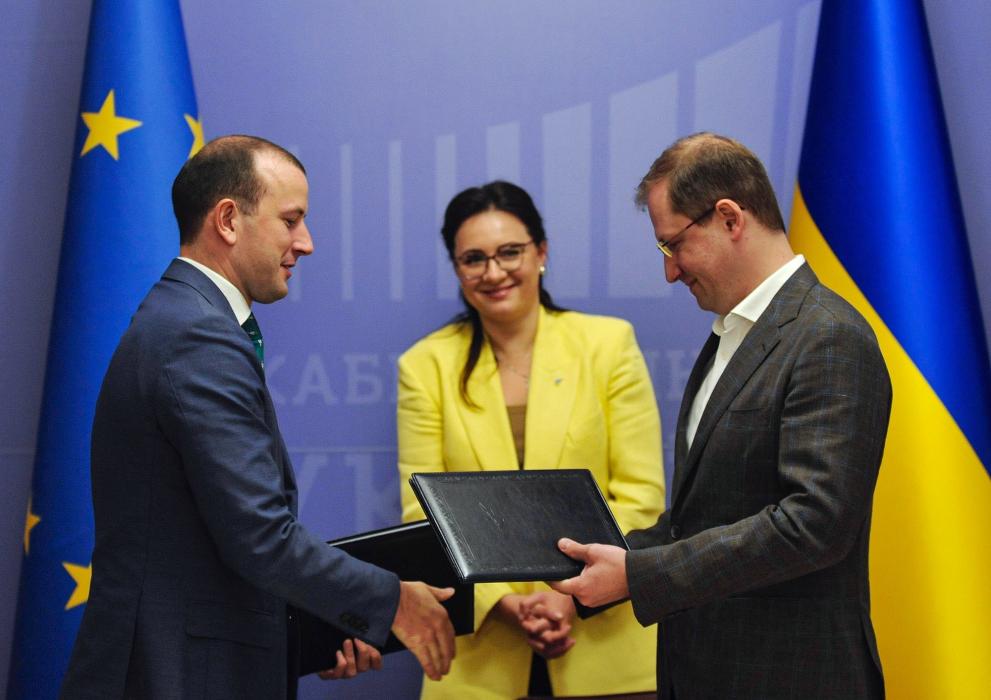
Today, in Kyiv, Ukraine, Commissioner for Environment, Oceans and Fisheries Virginijus Sinkevičius and the Minister of Ecology and Natural Resources of Ukraine Ruslan Strilets jointly signed an agreement on Ukraine’s accession to the LIFE programme for environment and climate. Ukraine is the first non-EU country to join the programme. By joining the LIFE programme, Ukraine could benefit from LIFE’s support to help restore its environment after the destruction brought about by the Russian invasion, be it pollution, destruction of ecosystems, or other long-term effects.
Commissioner Sinkevičius said:
Russia’s invasion of Ukraine is causing a substantial immediate damage to water supply and sewerage systems, sea, land and air pollution which will have a long-lasting environmental impact. Repercussions on human health can last for a very long time. Through this partnership, Ukrainian public and private organisations will be able to receive financial support for projects to clean polluted areas, rebuild after the destruction in a way that protects and restores nature and is in harmony with a circular and zero emission economy.
In the short term, the LIFE programme could support Ukraine’s reconstruction efforts through a needs analysis and the mobilisation and capacity building of different actors to tackle soil and water decontamination through nature-based solutions. In the medium and long term, as in other countries participating in LIFE, projects can aim to:
- Develop and demonstrate eco-innovative techniques and approaches
- Promote best practices and behavioural changes
- Support the development, monitoring and enforcement of laws similar to the ones in EU as well as plans and strategies that can contribute to implement these laws
- Catalyse the large-scale deployment of successful solutions
Next steps
Ukrainian applicants can already submit proposals under the 2022 LIFE calls for proposals. In order for a project to receive funding, Ukraine first needs to ratify the association agreement.
Background
Ukraine is reporting sustained damage to water bodies, water supply and sewerage systems, and long-lasting damage to valuable ecosystems, biodiversity and marine sites. The repercussions for human health could last a very long time. Military equipment and toxic chemicals in water, soil and the air could persist for decades. After the pollution and destruction, the reconstruction will be highly resource-intensive, in terms of energy, construction materials and so on.
The LIFE programme is the EU's funding instrument for the environment and climate action running since 1992. It has co-financed more than 5,500 projects across the EU and beyond and has a funding of €5.4 billion. It occupies a niche between EU programmes for research and innovation and large-scale financing programmes. As such, LIFE bridges the gap between research and policy implementation, addressing the external factors related to environmental and climate innovations by testing and demonstrating practical solutions. The new LIFE Programme 2021-2027 allows non-European countries to join the program through bilaterally negotiated association agreements.
Details
- Publication date
- 24 June 2022
- Author
- Directorate-General for Environment

